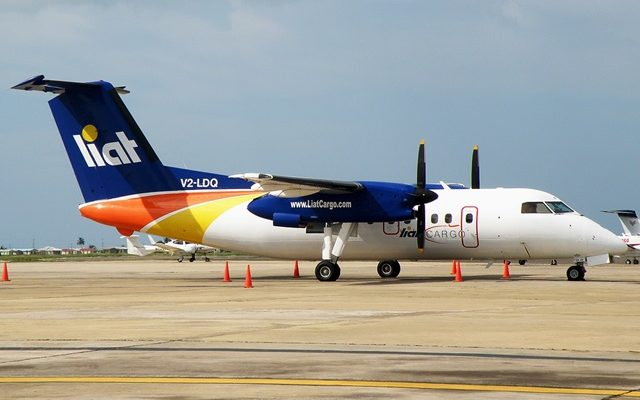ST. JOHN’S — A Caribbean airline that helps tie together the region’s many island nations has been saved from going under — at least for now — by a rescue plan led by the government of Antigua and Barbuda.
The 45-year-old LIAT, owned by a handful of regional governments, provides vital service between 15 Caribbean countries, connected by economics and culture but divided by the sea. It operates almost 500 flights a week.
Antigua and Barbuda, where LIAT is headquartered and which currently holds a 34 percent share, is poised to become the majority shareholder after Barbados agreed to sell the bulk of its current 49 percent stake.
Negotiations are set to commence between Prime Minister of Barbados Mia Mottley and Antiguan Prime Minister Gaston Browne, who submitted an official proposal last month, to iron out a deal.
Barbados was not “turning its back” on the airline, Mottley told her island’s parliament recently, but planned to maintain a minimum share.
LIAT has been on the brink of collapse in recent months, its troubles exacerbated by the 2017 Atlantic hurricane season which devastated four of its destinations and sent revenue plummeting.
The company’s debts top $60 million, much of it owed to the Caribbean Development Bank.
Mottley said while she believed regional affordable air travel to be of “critical” importance, financial restraints due to a current IMF-supported national austerity program had forced Barbados to “take a step back.”
“The current business model LIAT has is not an attractive one,” Mottley told Parliament. “Significant restructuring is needed and there is no unanimity on the way forward. If others want to try a different methodology they should be given a chance to try.”
How much Antigua is prepared to stump up has not been finalized but chief of staff Lionel Hurst told AFP it would be a “significant amount of resources.”
“LIAT connects us all; the function which LIAT has performed from the very beginning is precisely that,” he said. “Back in the day, if you wanted to get freight from Barbados to St Lucia, for example, it was not uncommon for it to go through various other countries on the way.
“With LIAT, both freight and passengers have been able to go directly from one port to another and we are determined to ensure that LIAT continues to play that role.”
Hurst said Antigua planned to increase both the airline’s fleet and destinations to include U.S. hubs such as Florida and Georgia, delivering a boost to tourism too.
“Without a doubt LIAT can overcome its problems with an increase in its capabilities,” he continued, adding: “LIAT?s collapse would also spell the end of hundreds of jobs; we will not let that happen.”
In March, pilots and other workers across LIAT?s almost 700-strong workforce agreed to a six percent pay cut to slash operating costs.
LIAT’s other shareholders include the governments of St Vincent and the Grenadines, Grenada and Dominica. A tiny percentage is owned by private investors and employees.
More than just a commercial entity, LIAT is described by its CEO Julie Reifer-Jones as “a private company with a strong public interest.” The airline has only made a profit once (2009). While Caribbean governments have traditionally borne the losses, they face constant pressure from taxpayers to reduce them.
–AFP

